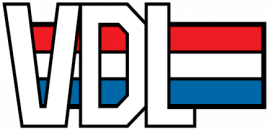Deze vacature is niet meer beschikbaar
For this graduation project we are looking for Master students. Are you studying at TU Automotive, Energy Systems or Physics? Then we are looking for you! The research will mainly consist of how to trace the loss of heat in our buses, trucks and cars back to the system.
Graduation project – Re-use of FC heat for Bus, Coach and Truck
Job Mission
After a study performed how to re-use heat from a FC generally (in a Rankine cycle) for stationary and mobility applications, VDL wants now to know, how this waste heat can be re-used in mobility for two kinds of applications:
To heat and cool a bus, coach or truck cabin in the winter and summer
For a refrigerated food truck or trailer.
In Fuel Cells Heavy Duty EV-vehicles 100kW to maximum 300kW waste heat is generated with a temperature of 70 degrees Celsius. At this moment this heat is cooled away, which makes the vehicle inefficient and noisy. By re-using this amount of heat the efficiency of FC EV-vehicles in summer and winter can be increased and perhaps the related battery pack can be reduces in size.
Some aspects:
How could a re-using FC heat system work in mobility applications? What technology is available on the market for other applications? What would be the energy balance and what are the efficiencies? What performances in cooling and heating can be achieved? How much energy can be saved during a year or per used kW of energy? Is it possible to cool down to minus temperatures with waste heat or maybe in combination with an extra heat pump? How could a solution for mobile applications look like? Can you propose a system or adapt a current market system?
Job Description
- Market and literature study to theoretical and available systems, like absorption and adsorption
- Make a flow diagram, how such system could work for bus, coach and truck cabin climatizing
- Use a MathLab/Simulink model to calculate the performance and control strategy at different ambient temperatures, FC power output, and requested capacity/ temperatures for bus, coach and truck cabin
- Adapt the model for refrigerated food truck, maybe including extra heat pump. From which temperature range an extra heat-pump is needed
- Use a MathLab/Simulink model to calculate the performance and control strategy at different ambient temperatures, FC power output, and requested temperatures (including minus temperatures) for the refrigerated truck
- Make an overview how these systems could look like and can it be integrated in the vehicle platforms. A 3D basic model
- Pro-Con’s including some economical aspects or concerns known from the other applications
- Recommend how to proceed
- You weekly report and discuss your progress with your VDL supervisor.
Personal Skills and Experience
- You are in the final stage of your Master program
- Experience in literature studies
- Knowledge from MathLab/Simulink
- Abstract thinking, out-of-the-box thinking, analytical but still hands-on. Capable of implementing simple and practical solutions
- Effective communication with all levels and disciplines. Clear and structured way of reporting.
- Able to challenge others, to come up with even better ideas
- Team spirit and cooperative attitude
Job Attractiveness
- Contribute to the further development of state-of-the-art, high-tech transport solutions
- Dynamic working environment
- Ability to connect software development with mechanical development, production and test-environment
- You will be part of the international industrial family business, the VDL Group, where continuity is paramount
Interested?
Are you interested and do you meet the profile? Then we would like to receive your CV and motivation for this vacancy!
The Company: VDL Enabling Transport Solutions
VDL ETS focusses on research, development and testing of new concepts and technologies for transport-related activities within the VDL group. The objective is to develop environmentally-friendly and innovative hardware and software solutions in the field of electric transport (BEV, (P)HEV and FCEV mobility), battery technology, charging infrastructure, energy storage, automated guided vehicles (AGVs), and guidance and navigation technology.
Department Information
Within VDL ETS, the department Strategy and Innovations is responsible for the expected developments within the next five years on Zero Emission and Automated mobility. The department is involved in all kinds of production, storage, transport and use of Green Renewable Energies. This can be for example new battery technologies, but also everything which has to do with hydrogen and heat re-use and storage. More specifically, VDL is working on electric trucks, public transport busses, coaches, AGVs, Generator Sets (GenSets), charging stations etc.
In this VDL department, all kind of innovations in the market are collected and the technical and economic feasibility is checked, before a project for the next years is defined. This feasibility check can sometimes also be done by small real-time tests on prototypes, or in the laboratory and/or by simulation in MathLab/Simulink. For example, different charging stations for Heavy Duty vehicles were compared or different kind of batteries were and are tested or a simulation was executed on different hydrogen storage techniques or on a new Fuel Cell module including its Balance of Plant.
#LI-JR1